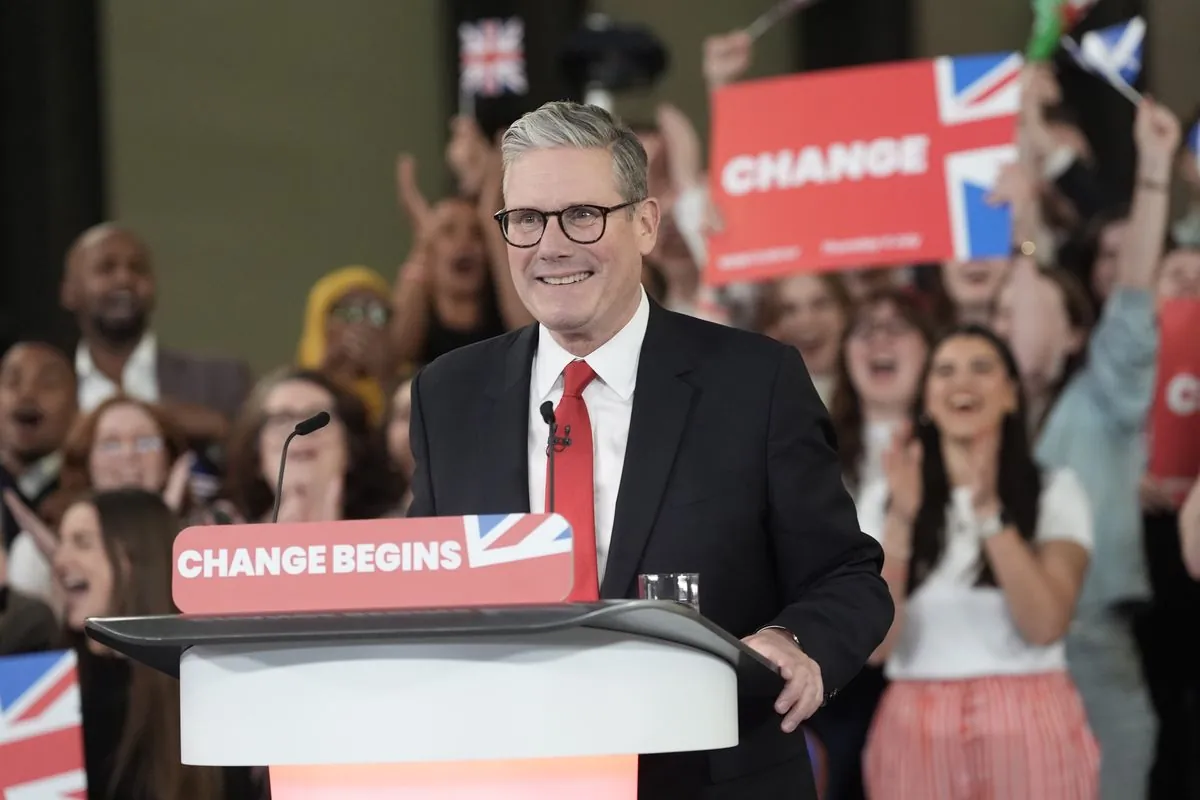Starmer's Approval Plummets Amid Cronyism Concerns and Fuel Payment Changes
Sir Keir Starmer's approval rating hits record low as public perception of government self-interest grows. Labour faces criticism over winter fuel allowance changes, with Chancellor defending the decision.

Recent polling data reveals a significant decline in Sir Keir Starmer's approval rating, reaching its lowest point on record. This downturn coincides with growing public concerns about cronyism within the government.
A survey conducted by More in Common this week indicates that 63% of respondents believe the government prioritizes its own interests over those of ordinary citizens. Starmer's personal approval rating has plummeted to -16, a stark 27-point drop from his post-election high of +11.
The poll also sheds light on public perceptions of corruption across the political spectrum. 53% of those surveyed view Labour as somewhat or very corrupt, while two-thirds hold similar views about the Conservatives. Notably, over 40% of respondents believe both major parties are equally likely to make corrupt decisions or appoint allies to senior positions.

Luke Tryl, UK director of More in Common, commented on the findings, suggesting that voters remain skeptical about Starmer's "country before party" pledge. The results indicate a general disillusionment with the political establishment, reflecting a "pox on all your houses" sentiment among the electorate.
The Labour Party's decision to means-test the winter fuel allowance has also sparked controversy, particularly among older voters. 82% of those over 75 oppose the change, while only 36% of 18-24 year-olds share this view. This policy shift affects approximately 10 million pensioners, highlighting the challenges of balancing fiscal responsibility with social welfare.
Rachel Reeves, the Chancellor, defended the decision to modify the winter fuel payment system. She stated, "It was not a decision I wanted to make," emphasizing the necessity of the change to stabilize public finances in challenging circumstances.
"It was a decision that I had to make in incredibly challenging circumstances to put our public finances on a firm footing."
This situation unfolds against the backdrop of the UK's aging population and complex political landscape. With over 18% of the population aged 65 or older as of 2021, policies affecting seniors carry significant political weight. The winter fuel payment, introduced by a Labour government in 1997, has been a cornerstone of support for older citizens, typically providing between £100 and £300 per eligible household.
As the UK grapples with a public sector net debt exceeding £2.5 trillion, difficult decisions regarding social programs and fiscal policy are likely to remain at the forefront of political discourse. The current challenges faced by Sir Keir Starmer and the Labour Party highlight the delicate balance between implementing necessary reforms and maintaining public trust in an era of heightened scrutiny and political polarization.


































